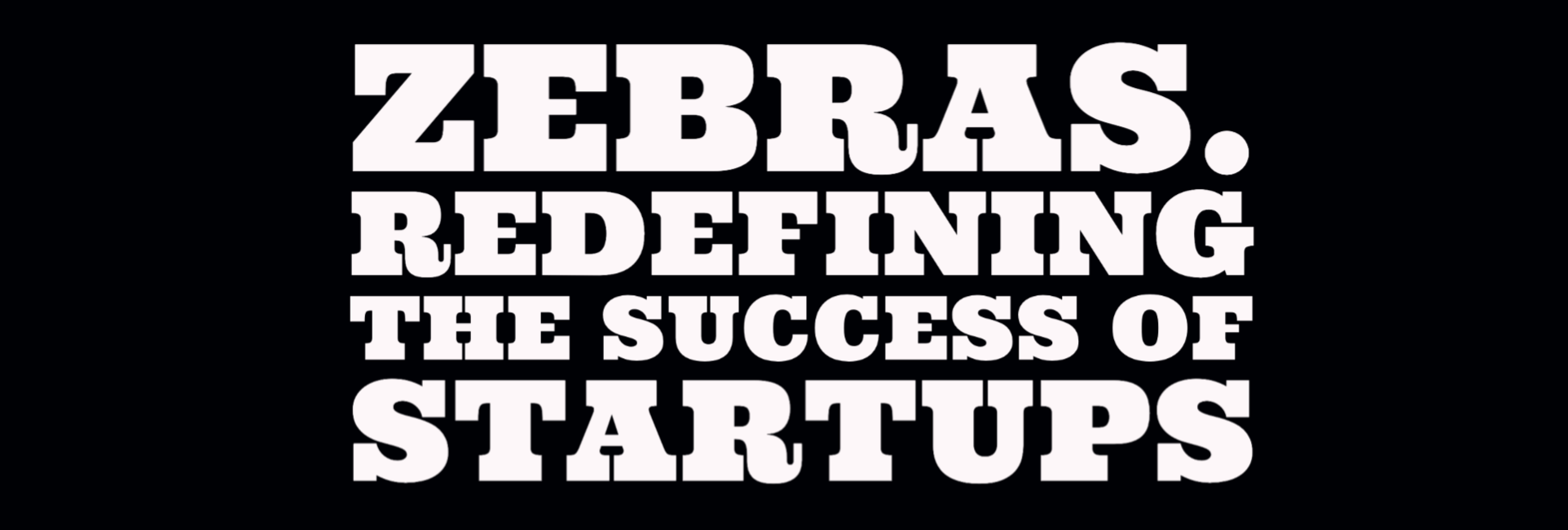‘The message for legacy companies is clear: You must self-disrupt or gobble up your disruptors, or else face obsolescence at the hands of nimble start ups with access to more capital than ever before.” – Entrepreneur
The subsequent message to startups? If you want our cash, consider profit and growth, consider it above everything else – including people and the planet.
Is superfast growth really sustainable growth? And as we all become more conscious of the effects we are having on the planet – should those providing equity be switching motivation to a more considered playing field in which profit, purpose and community are of equal importance? Enter Zebra Companies – so called because they are both black and white. They aim for both profit and purpose.
We spoke to Jess MacIntyre, Co founder of Mac+Moore to learn a little more about the Zebra movement, which is creating the culture, capital and community for the next economy.
—
“I became disillusioned with typical startup and VC funding structures – and in particular the ad agency culture that exacerbated and celebrated it – a number of years ago. Time and again it was acknowledged (and accepted) that cherishing people or the planet was secondary to accelerated growth, growth which often relied upon racking up substantial losses in the first few years of operation and which demanded huge amounts of money.
The Zebra movement is all about appreciating ideas and founders for more than just the monetary outcomes they propose to deliver. Not only that, it is about helping founders to access funding outside of the traditional VC investment. Only a tiny % of entrepreneurs – around 2% – access VC equity investment – VC is risky, and in turn investors seek heady rewards for that risk; 10x, 20x, 30x…
There are plenty of brilliant businesses who quite simply don’t want to reach that scale – perhaps because they can’t, or more likely because they don’t want to – because growth of that scale will likely undermine their sustainability or values.
85% of entrepreneurs are not served by banks and venture capital, notably women, people of colour and other minority groups. If you consider the geographic and demographic biases inherent in investment decision-making, you end up further limiting access for both investors and entrepreneurs. The Zebra movement is made up by (and founded by) women and minority groups – born from the people pushed to the sidelines as a way to offer up an alternative solution. The movement looks to remove the ‘bro’ culture, making funding available to those who have long been overlooked. Women are and will benefit hugely from the Zebra movement – with research having shown that once they are able to secure the initial funding, female entrepreneurs prefer more certainty and take less risk and, consequently, grow profitable and sustainable businesses — albeit at a slower pace and, potentially, on a smaller scale.
The Zebra movement also considers new concepts, including ‘Exits to the Community’ – whereby transitions of ownership go to those who rely on them the most – a far cry from growth models that prioritise model only where products and services can be carried out most cheaply.
Promoting diversity among entrepreneurs and rewarding founders who want to balance profit and the planet will benefit the entire ecosystem. As we become more and more aware of the impact we are having on the Earth, it’s not just important, its imperative we start looking at the funding models we’re promoting.”
Interested people read interesting things…
Find out more about Zebras:
ZebrasUnite
Everything you need to know about The Zebra Movement: https://zebrasunite.coop
DazzleCon: A conference for like-minded founders to learn and discuss all things zebra (like a group of wolves is a pack, a group of zebras is called a dazzle).
Case studies worth a look:
Hiut Denim – an incredible story of community:
Cardigan is a small town of 4,000 good people. 400 of them used to make jeans. They made 35,000 pairs a week. For three decades. Then one day the factory closed. It left town. But all that skill and knowhow remained. Without any way of showing the world what they could do. That’s why we have started The Hiut Denim Company. To bring manufacturing back home. To use all that skill on our doorstep. And to breathe new life into our town.
Toya – ‘Beyond Pink’
A gaming platform designed to motivate and inspire young girls to reach their full potential. The digital gaming industry has historically lacked content for women and girls, or has limited content to a very narrow definition of femininity based on beauty. Toya, founded by Anat Shperling and Yifat Anzelevich, is challenging and changing those norms by providing games that put girls into the role of hero, and by offering games untethered to gender (focused on nature, mysteries and history, for example). A for-profit entity, Toya still serves a very important social goal of promoting gender equality through its products.
If you enjoy reading all sorts of interesting stuff like the above, make sure you sign up to Rambling On, our bi-weekly round up of news and views for business leaders.
